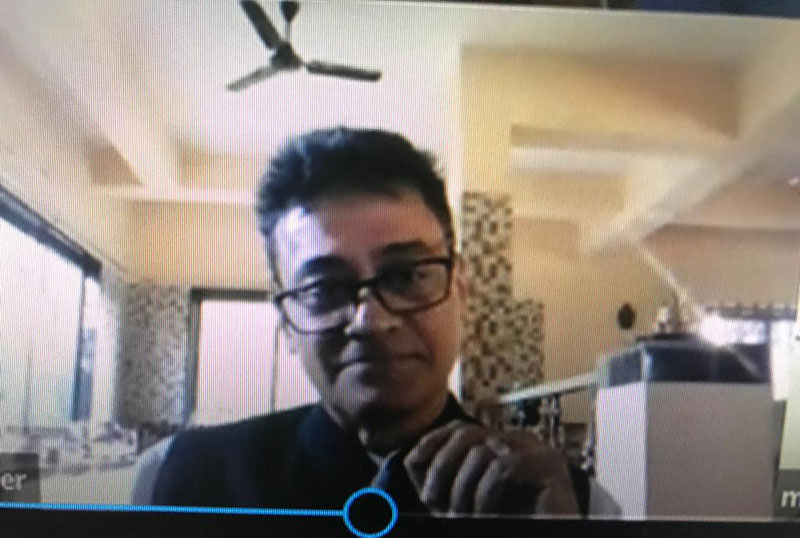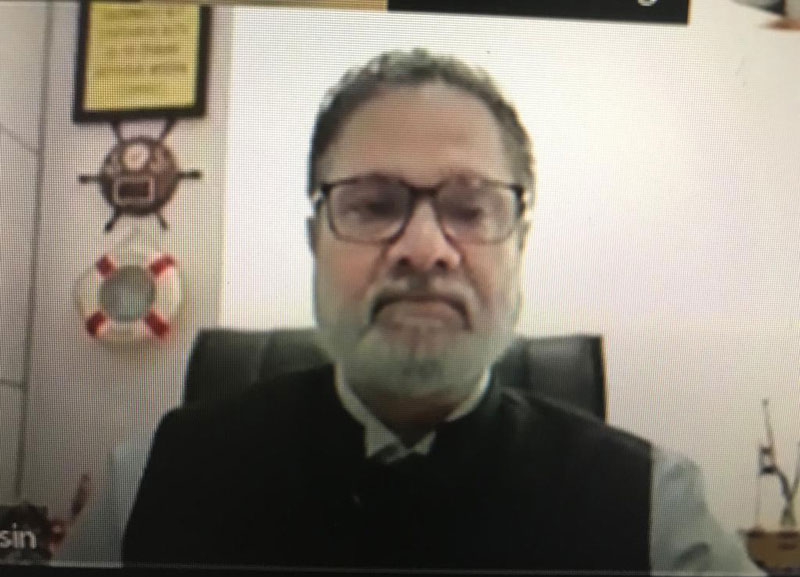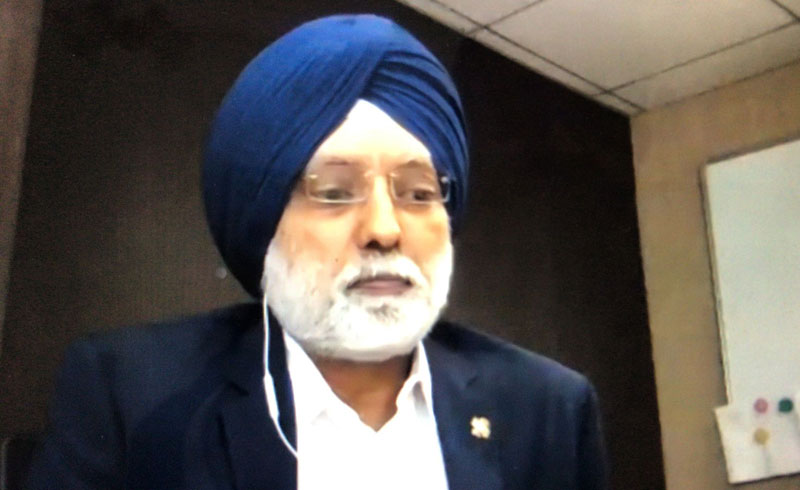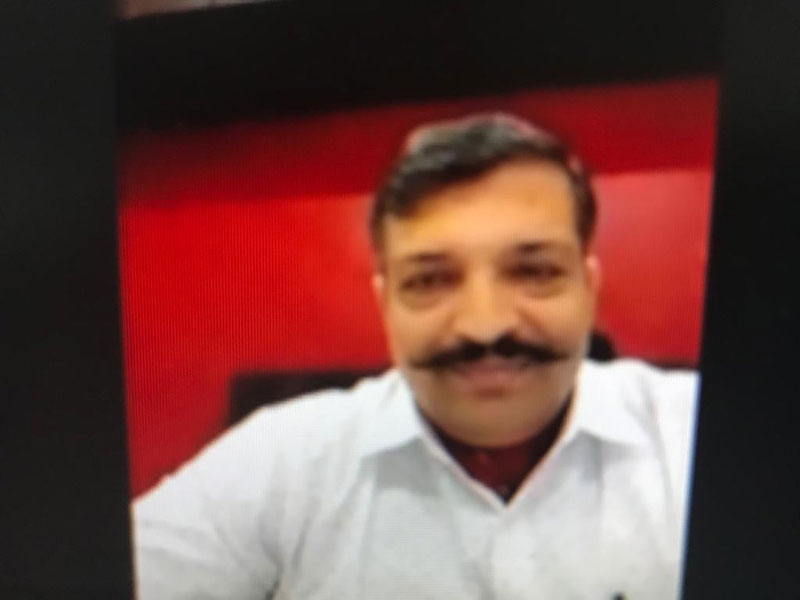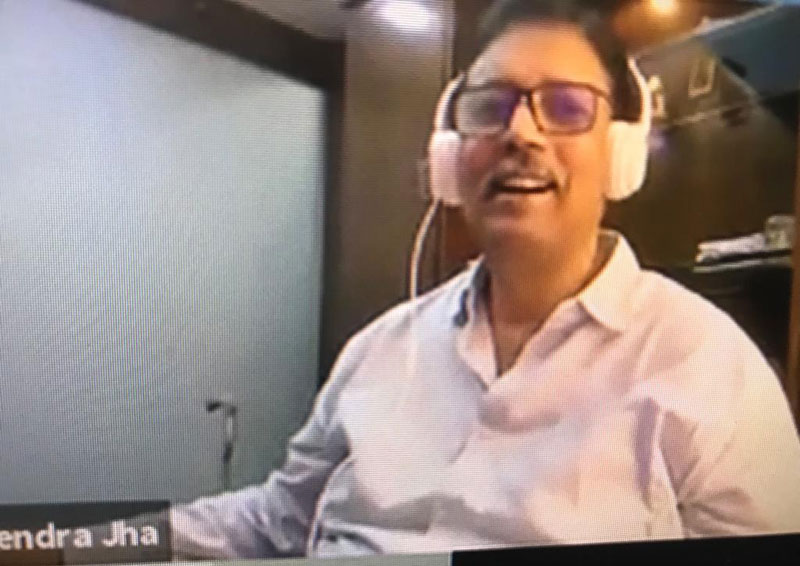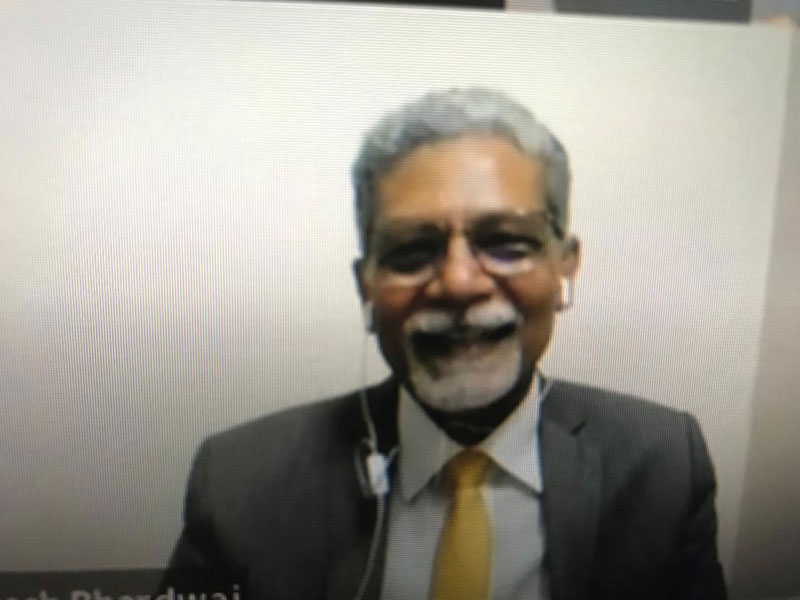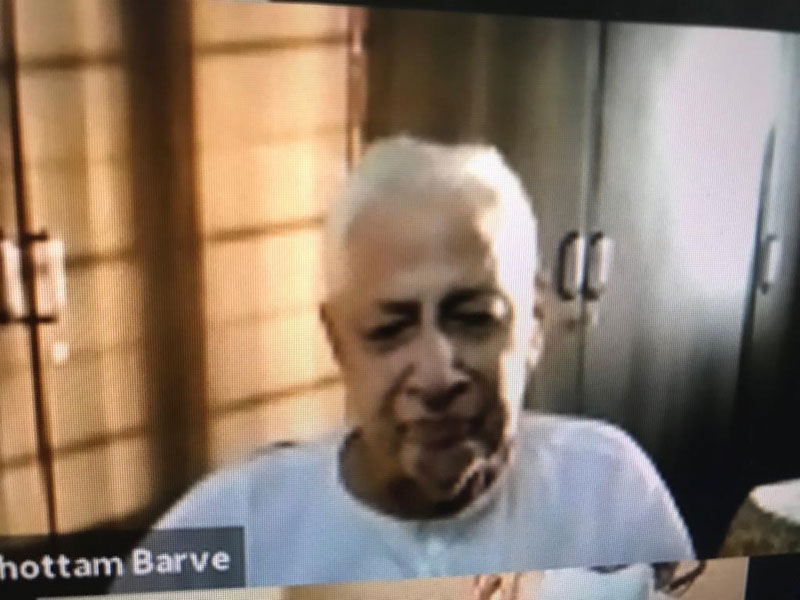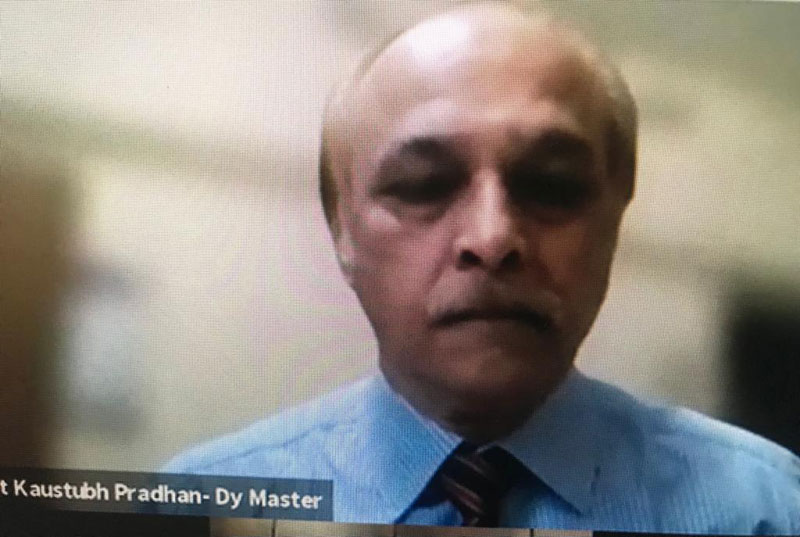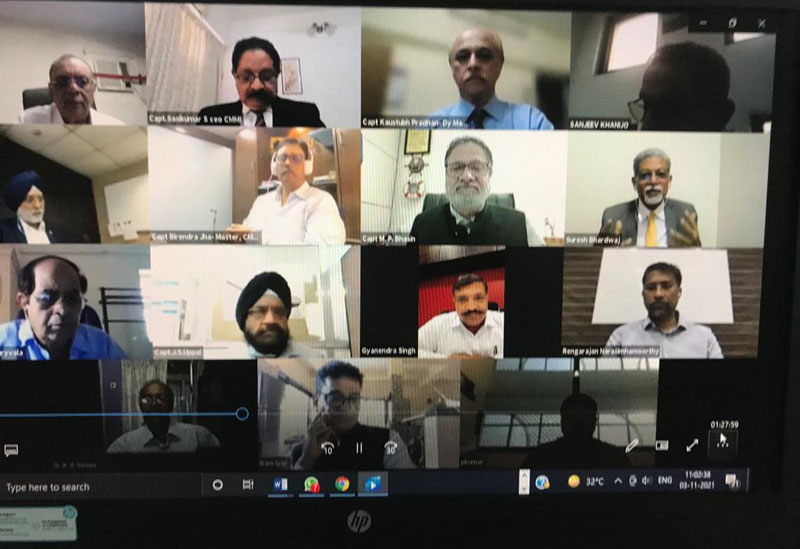Events
Webinar on "Future of Shipping & Insights into Container Boom"
On Friday 29th October 2021, CMMI organized a Webinar on "Container Shipping Boom & Future of Shipping" as a Panel Discussion with 2 of its members who were experts from the field - Capt. J.S Gill-MD X-Press Feeders and Captain Ram Iyer -President of MANSA (Maritime Association of Nationwide Shipping Agencies).
The Deputy Master Capt Pradhan opened the meeting with first paying tributes to departed souls Capt Peter of Vizag and the untimely passing away of Capt Chandramouleeswaran of Chennai.
Master Capt Jha welcomed the Panellists and introduced the new Court members to the gathering.
Dr (Capt) Suresh Bhardwaj, Warden, laid out the context of Panel discussion and introduced the Panellists:
Container shipping rates have been surging on all shipping routes. The Drewry World Container Index is currently at its highest in four years for West bound trade. Eastbound container freight rates since the beginning of the COVID-19 outbreak have more than doubled, eclipsing all historical highs.
Freight shipping is in the midst of a unique and unusual predicament.
An unforeseen cascade of events caused by the pandemic has us facing a worldwide container shortage crisis.
It's a crisis because the lack of containers has a ripple effect down entire supply chains, disrupting trade on a global scale.
To talk about this and related commercial issues, we have 2 experts from the field:
1. Capt. J.S Gill-MD X-Press Feeders (largest independent common carrier in the world today)
He is Alumni of Sherwood College, Nainital, ISS Cadet, Master with MOL, came ashore in 1995 with Forbes Sea Consortium taking care of X-press feeders at Kolkata. In 2008 X-press feeders opened their own Agency house in India and Capt Gill moved to Mumbai as its Managing Director.
Many laurels to his credit since then, opened Bangladesh office, sits on the Board, expanded India business 4 folds which is now over 1.1 million teus annually in and out of the country through 21 services out of various ports.
Notwithstanding - he is an avid sports person too, runs marathon and an avid golfer!!!
2. Captain Ram Iyer -President of MANSA (Maritime Association of Nationwide Shipping Agencies).
A thorough-bred Mumbaikar, we were colleagues in Seahorse Group where I spent good 15 years. Today he is Vice President at Seahorse since 2012 heading number of verticals in the organisation including Ship Manning, Operations, business development, Tramp vessel segment, NVOCC & Project cargo forwarding, International Port representation, Port Captaincy services, Vessel vetting Inspections, Insurance and Claims, Ship Chartering, COAs etcetra etcetra etcetra ……
Colors - up for CMMI for having such illustrious members !!!
1. Starting with you Capt Gill - The illusive boom of the supposedly cyclic industry is here at last !!! But not without its unique problems which we will come to later - talking about the boom -
It is said that the fundamentals for the rest of this year, and 2022 remain "very solid". Demand growth will be good next year, with tonnage supply staying tight, particularly for small vessel sizes 1000 - 1500 teu - your area !
Can you give us a global scenario first - coming down to Indian scenario - the perspective on this container shipping boom?
Capt Gill: Container shipping has gone through various cycles and ups and downs, new players come in and traditional ones gone extinct. But it has catapulted to a different platform today. In 2019 before the Covid struck, the fixtures per week were about 30 to 35 and most were for 12 months or lower, very conservative. 9000 teu ship charter was 16,000-17000$ and Feeder tonnage 1000 - 1500 teus were 5000 - 7000 $.
Change started in May 21 with number of ships on offer quickly reduced to only 8-9 and fixtures were for 3 years to 5 years. Yesterday's fixture if I can quote, a 7000 teus ship was chartered for couple of months at 155000 $ a day.
Next is Bunker price which in July 2019 Fuel oil was 460$ per ton which gradually moved up and yesterday it was 626$ per ton with MGO going much higher at 726$ per ton.
Furthermore, the slump of 2020 and the sudden pick-up then saw only one way traffic, with congestions at consumption zones. The new-build market that had dulled caused prices shoot up and the costs of West-bound round voyage rose to 5 million $ with waiting delays only adding to costs.
New-builds coming out are in big segment, not the smaller ones. A 4000 teu ship was recently charted for 6 years at 40,000 $. This is the boom, not looking short term, all looking long term predicting this boom to stay for next minimum 3 years. Freight rates might come down a bit or fluctuate but the boom is here to stay for at least next 3 years.
Q to Capt Iyer - You represent the very vital ship-shore interface - as agency function overseeing the various interactions of Pilots, Customs, Ports,. So what is the global scenario today from this perspective and do we in India match up?
Capt Iyer: From the ship-port interface perspective, in India, it is still a challenge to have a smooth turnaround of the vessel with many interactions with various agencies. FAL with digitization is enabling, National Logistics portal is there in India but miles to go, with the different agencies interactions. With pressures on time compression at port interfaces, all connected, be it Master or Agent are tremendously stressed. Only an attitudinal change from authorities to facilitate, move from Silo process to seamless transactions across agencies.
Q to Capt Gill - Port and hinterland congestion is set to continue. Congestion and logistic snarl-ups are a worldwide problem, stemming mainly from the huge bounce-back in trading volumes after the Covid-19 slump of 2020. Empty containers are just not available. How are you coping with these challenges?
Capt Gill: This is another reason for freights going up. Empty container that was available for 1200$ is now 7000$. We in India have done not too bad because of increased port and CFS capacity, except for Mundra, even JNPT was not congested and evacuation was fast. We have exported empties too and many times we get stuck because space is not available on mainliner. So it is quite a balance act everybody has to be playing with pulse on the trade.
Q to Capt Gill - This is a Ship Masters' Association, so from that perspective the oft recurring issues like wrong declaration of weights or wrong declaration of dangerous cargo have been a constant nuisance. We have VGM and similar controls now. What would you advise Masters to be careful about?
Capt Gill: Over the years Master has lost control on the cargo issues. It was the container business that brought about the "….said to weigh, and said to contain…" phenomenon. To some extent we are controlling "said to weigh …" issue, but the " said to contain…" is still illusive. Why Master alone, see what happened at Mundra and we banned containers from Iran and Pakistan. Even the authorities are at a loss with this " said to contain…' issues. So we as agents need to ensure that we are conducting business with the right people. We just had an unfortunate fire incident on our Xpress Pearl and the analysis revealed fault on shipper and part on Master as well. We actually stopped accepting DG cargo for 2 months except from Main-line operators who have robust systems in place. It basically happens with smaller player with minimal insurance covers, NVOCCs. So Masters if there is any doubt, like signs of bulging, must get the cargo inspected, container offloaded but not to carry unless fully satisfied.
Q to Capt Iyer - What about similar guidance to Masters from your perspective, the ship-agent in changing scenarios?
Capt Iyer: Taking on from what Capt Gill highlighted, we at MANSA have come out with an SOP for the functioning of the Agency houses. But transparencies are lacking. Any scrutiny is scuttled by severe commercial pressures.
Secretary General Capt Bhasin then took up the Q&A session.
Q: How can the inland transportation be improved that adds to the logistics costs.
Capt Ram: Bottle-necks are the cause. We may have super-highway but at the last-mile bottle-necks come in. We do have logistics data bank and gate appointment systems coming in to assist now but long way to go.
Q: How to ensure proper DG declarations?
Capt Gill: There is need for training and proper surveying of DG cargo stuffing and declaration which is abysmally low.
Capt Gyanendra Singh, Treasurer of CMMI delivered the Vote of thanks.

